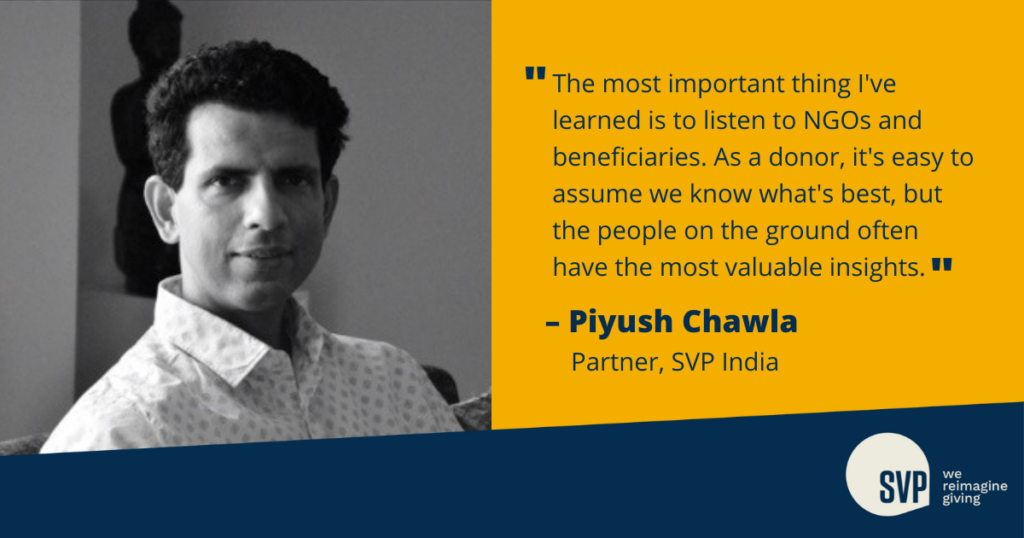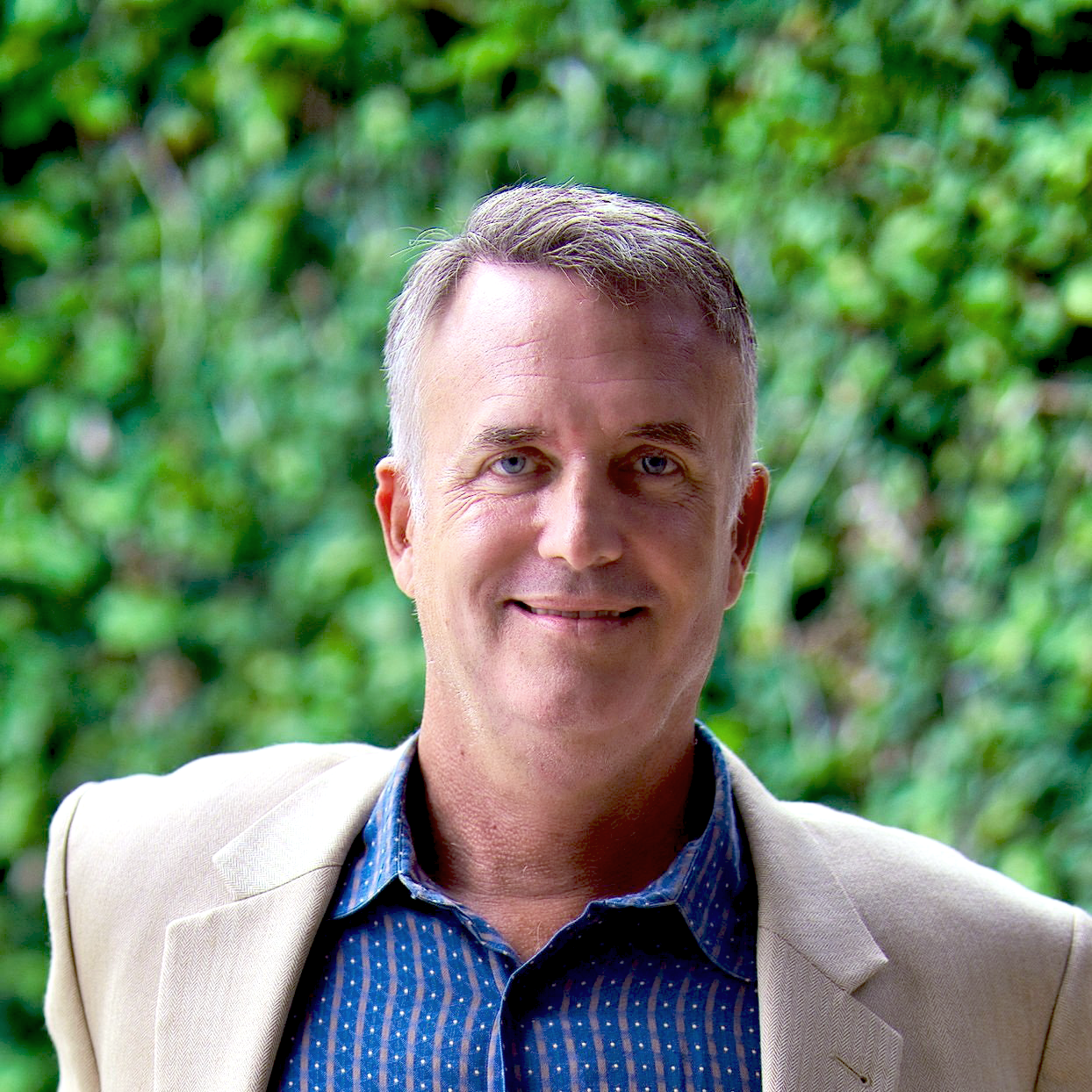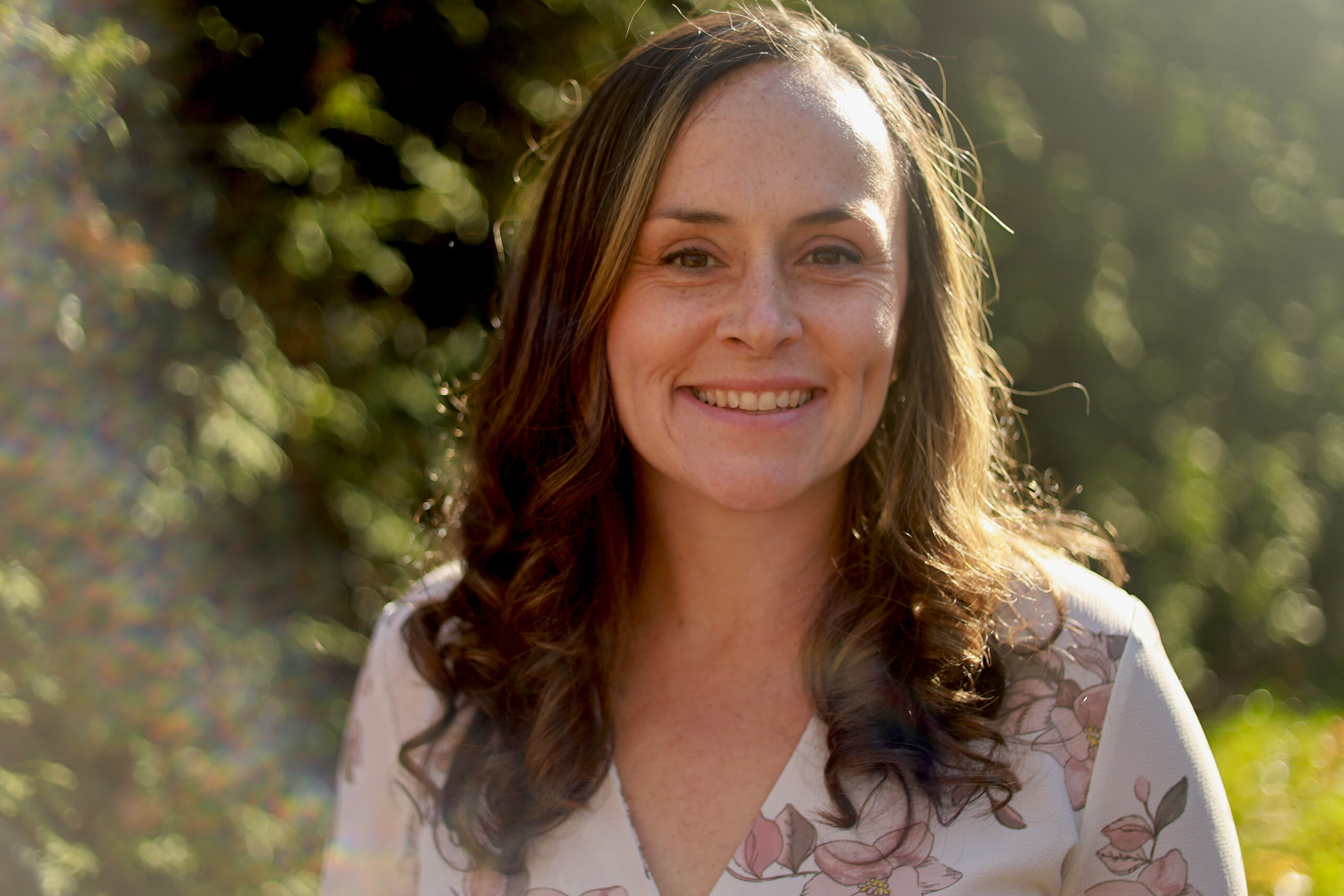Piyush Chawla, SVP India
Meet Piyush Chawla, a Partner of SVP India. Piyush is on the frontlines working hand in hand with the community at SVP India in Delhi. From education and healthcare to human rights, Piyush has seen firsthand the impact that trust-based philanthropy can have. Trust-based philanthropy reimagines relationships between grantmakers, NGOs, and communities to ensure that resources are distributed in the most equitable and impactful way.

How did you get involved with SVP India?
I was looking for a new way to give back to the community after selling my business. I had done some volunteer work with NGOs in the past, but I was looking for something more structured and impactful. I heard about SVP from a friend, and I was immediately drawn to their focus on working with NGOs and their commitment to trust-based philanthropy. I started attending SVP’s annual partner meetings and monthly all-partner meetings. That’s when I really got hooked. It was very exciting and energizing to meet new Partners every single month and brainstorm new ideas. I was so inspired by the other Partners and the work that they were doing.
I love the partner engagement and sense of community that I get from being involved with SVP. I’ve met so many amazing people who are passionate about making a difference in the world. I’ve been with SVP for a few years now, and I’ve never looked back.
How is SVP making a collective impact in India?
SVP is making a collective impact by working with NGOs to address some of the most pressing social issues in India. Education and healthcare are two major issues in India. Primary education is especially important, as India has a large, young population.
SVP also works on other neglected areas, such as human rights. For example, SVP supports an NGO that helps interfaith couples facing discrimination. This is an issue in India, as interfaith marriages are still not widely accepted in a few parts of the country.
SVP’s goal is to make sure that no area is neglected. They believe all people deserve access to quality education and healthcare, regardless of their background.
How is trust-based philanthropy accelerating collective impact in India?
SVP India is piloting a new way to build trust between donors, NGOs, and partners. The pilot program starts with a small investment from SVP India. Over time, if the NGO and partner build trust, more donors will invest and provide long-term funding so the NGO can scale.
Trust is also built between the NGO and partners through open communication. The NGO shares its strengths and weaknesses, and as its partner, SVP listens and offers support. This level of trust allows the NGO to be more effective in its work and SVP in its level of support.
I believe the SVP partner should take the initiative to make everyone feel at ease to create an environment of trust. And when you establish trust, that’s when we can clearly see trust-based philanthropy in action.
What have you learned working with SVP India?
The most important thing I’ve learned is to listen to NGOs and beneficiaries. As a donor, it’s easy to assume we know what’s best, but the people on the ground often have the most valuable insights.
For example, there was a school in rural India that was struggling to attract students. The donors brought in consultants who suggested installing fancy equipment and software, but enrollment still didn’t improve.
Then, another set of consultants came in and started by talking to teachers, parents, and students. They learned that the real reason students weren’t attending was because the school was next to a forest, and parents were worried about wild animals. The consultants’ solution was to build a high wall with barbed wire around the school. As soon as the high wall was built, enrollment shot up.
What advice would you give someone new to philanthropy?
- Listen. Listening to the people on the ground is essential for effective philanthropy.
- Build trust. Trust is essential for building strong relationships between donors and NGOs.
- Work together. Collective impact is possible when donors, NGOs, and other stakeholders work together toward common goals.


